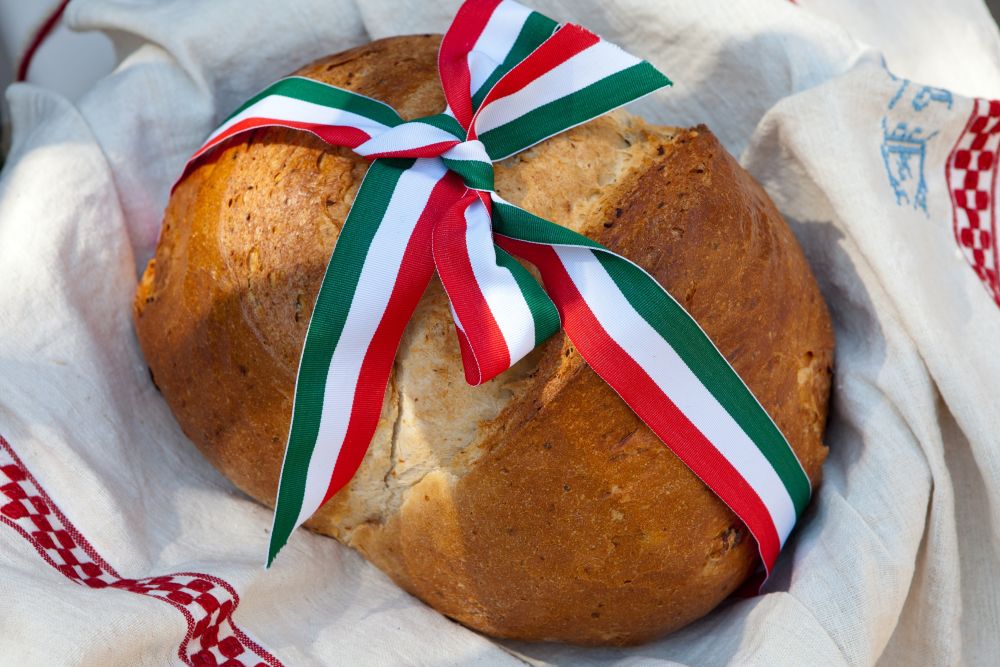A föld, amitől elszakadtunk
2025. máj. 25. 23:34,
Nincsenek hozzászólások
🇭🇺🇭🇺🇭🇺🇭🇺🇭🇺🇭🇺🇭🇺🇭🇺🇭🇺🇭🇺🇭🇺🇭🇺🇭🇺🇭🇺🇭🇺🇭🇺🇭🇺🇭🇺A föld, amitől elszakadtunk – város és vidék sorsa közös
Ha ma bemegyünk egy hipermarketbe, almát veszünk, paradicsomot, tejet, kenyeret. Kényelmes, gyors, praktikus. De közben nem kérdezünk: ki termelte? Hol termett? Milyen kéz aratta le?
A válasz gyakran az: valaki más. Valahol messze.
A magyar mezőgazdaság ma kettős válságban van. Egyrészt elszenvedője a globális rendszereknek, másrészt magára maradt a saját hazájában. A gazda dolgozik, de nincs kapcsolata a fogyasztóval. A városi ember eszik, de nem tudja, kinek köszönheti. A föld és az asztal közé került egy rideg fal: a közöny fala.
A multinacionális cégek épp ezt a távolságot használják ki. Megkerülik a helyit, helyettesítik az élőt – és közben a haszon nem a magyar földre, hanem egy brazil, holland vagy amerikai számlára vándorol. A gazda kiszolgáltatott, a vásárló pedig megtévesztett.
Pedig város és vidék nem két külön világ. Egyazon test két karja. Ha az egyik elsorvad, a másik is gyengül. Ha nincs magyar gazda, nem lesz magyar étel. Ha nincs magyar étel, a nemzeti kultúra is fakul. Mert a nemzet nemcsak zászló és himnusz – hanem íz, illat, ünnepi étel, aratási hálaadás.
Kedves városiak: ez a ti ügyetek is. Amikor magyar termelőtől vásároltok, helyi piacon vesztek tojást, vagy támogatjátok a közvetlen értékesítést, nemcsak friss ételt vesztek – hanem jövőt.
A föld nem a múlt. A föld a jövő. Közös jövő.
🇬🇧🇬🇧🇬🇧🇬🇧🇬🇧🇬🇧🇬🇧🇬🇧🇬🇧🇬🇧🇬🇧🇬🇧🇬🇧🇬🇧🇬🇧🇬🇧🇬🇧🇬🇧
The Land We’ve Grown Apart From – The Shared Fate of City and Countryside
Today, when we walk into a hypermarket, we buy apples, tomatoes, milk, and bread. It’s convenient, fast, practical. But we rarely ask: Who grew it? Where did it come from? Whose hands harvested it?
The answer is often: someone else. Somewhere far away.
Hungarian agriculture today is facing a dual crisis. On one hand, it suffers under global systems; on the other, it has been abandoned in its own homeland. The farmer works, yet has no connection to the consumer. The city dweller eats, yet does not know whom to thank. Between the land and the table stands a cold wall: the wall of indifference.
Multinational corporations exploit precisely this distance. They bypass the local, replace the living—and while doing so, the profit does not return to Hungarian soil, but flows into Brazilian, Dutch, or American accounts. The farmer is left vulnerable, and the customer misled.
And yet, city and countryside are not two separate worlds. They are two arms of the same body. If one withers, the other weakens. Without Hungarian farmers, there will be no Hungarian food. And without Hungarian food, even our national culture fades. Because a nation is not only a flag and an anthem—it is also taste, scent, festive meals, and harvest thanksgiving.
Dear city dwellers: this is your cause too. When you buy from Hungarian producers, when you purchase eggs at a local market or support direct sales, you’re not just buying fresh food—you’re investing in the future.
The land is not the past. The land is the future. Our shared future.
Elérhetőségünk/Contact:
Email: skmadmissions@gmail.com
Discord: https://discord.gg/zn94hApa
